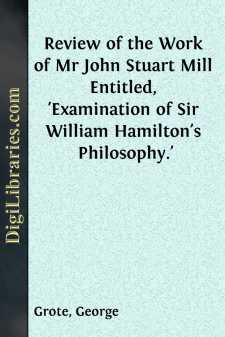Categories
- Antiques & Collectibles 13
- Architecture 36
- Art 48
- Bibles 22
- Biography & Autobiography 815
- Body, Mind & Spirit 144
- Business & Economics 28
- Children's Books 18
- Children's Fiction 14
- Computers 4
- Cooking 94
- Crafts & Hobbies 4
- Drama 346
- Education 58
- Family & Relationships 59
- Fiction 11835
- Games 19
- Gardening 17
- Health & Fitness 34
- History 1378
- House & Home 1
- Humor 147
- Juvenile Fiction 1873
- Juvenile Nonfiction 202
- Language Arts & Disciplines 89
- Law 16
- Literary Collections 686
- Literary Criticism 179
- Mathematics 13
- Medical 41
- Music 40
- Nature 180
- Non-Classifiable 1768
- Performing Arts 7
- Periodicals 1453
- Philosophy 65
- Photography 2
- Poetry 896
- Political Science 203
- Psychology 44
- Reference 154
- Religion 515
- Science 126
- Self-Help 85
- Social Science 83
- Sports & Recreation 34
- Study Aids 3
- Technology & Engineering 59
- Transportation 23
- Travel 463
- True Crime 29
Our website is made possible by displaying online advertisements to our visitors.
Please consider supporting us by disabling your ad blocker.
Review of the Work of Mr John Stuart Mill Entitled, 'Examination of Sir William Hamilton's Philosophy.'
by: George Grote
Description:
Excerpt
An Examination of Sir William Hamilton's Philosophy, and of the Principal Philosophical Questions discussed in his Writings. By JOHN STUART MILL. London: Longmans. 1865.
The work bearing the above title is an octavo volume, consisting of twenty-eight chapters, and five hundred and sixty pages. This is no great amount of print; but the amount of matter contained in it is prodigious, and the quality of that matter such as to require a full stretch of attention. Mr Mill gives his readers no superfluous sentences, scarcely even a superfluous word, above what is necessary to express his meaning briefly and clearly. Of such a book no complete abstract can be given in the space to which we are confined.
To students of philosophy—doubtless but a minority among the general circle of English readers—this work comes recommended by the strongest claims both of interest and instruction. It presents in direct antithesis two most conspicuous representatives of the modern speculative mind of England—Sir W. Hamilton and Mr John Stuart Mill.
Sir W. Hamilton has exercised powerful influence over the stream of thought during the present generation. The lectures on Logic and Metaphysics delivered by him at Edinburgh, for twenty years, determined the view taken of those subjects by a large number of aspiring young students, and determined that view for many of them permanently and irrevocably. Several eminent teachers and writers of the present day are proud of considering themselves his disciples, enunciate his doctrines in greater or less proportion, and seldom contradict him without letting it be seen that they depart unwillingly from such a leader. Various new phrases and psychological illustrations have obtained footing in treatises of philosophy, chiefly from his authority. We do not number ourselves among his followers; but we think his influence on philosophy was in many ways beneficial. He kept up the idea of philosophy as a subject to be studied from its own points of view: a dignity which in earlier times it enjoyed, perhaps, to mischievous excess, but from which in recent times it has far too much receded—especially in England. He performed the great service of labouring strenuously to piece together the past traditions of philosophy, to re-discover those which had been allowed to drop into oblivion, and to make out the genealogy of opinions as far as negligent predecessors had still left the possibility of doing so.
The forty-six lectures on Metaphysics, and the thirty-five lectures on Logic, published by Messrs Mansel and Veitch, constitute the biennial course actually delivered by Sir W. Hamilton in the Professorial Chair. They ought therefore to be looked at chiefly with reference to the minds of youthful hearers, as preservatives against that mischief forcibly described by Rousseau—'L'inhabitude de penser dans la jeunesse en ôte la capacité pendant le reste de la vie.'
Now, in a subject so abstract, obscure, and generally unpalatable, as Logic and Metaphysics, the difficulty which the teacher finds in inspiring interest is extreme. That Sir W. Hamilton overcame such difficulty with remarkable success, is the affirmation of his two editors; and our impression, as readers of his lectures, disposes us to credit them....



